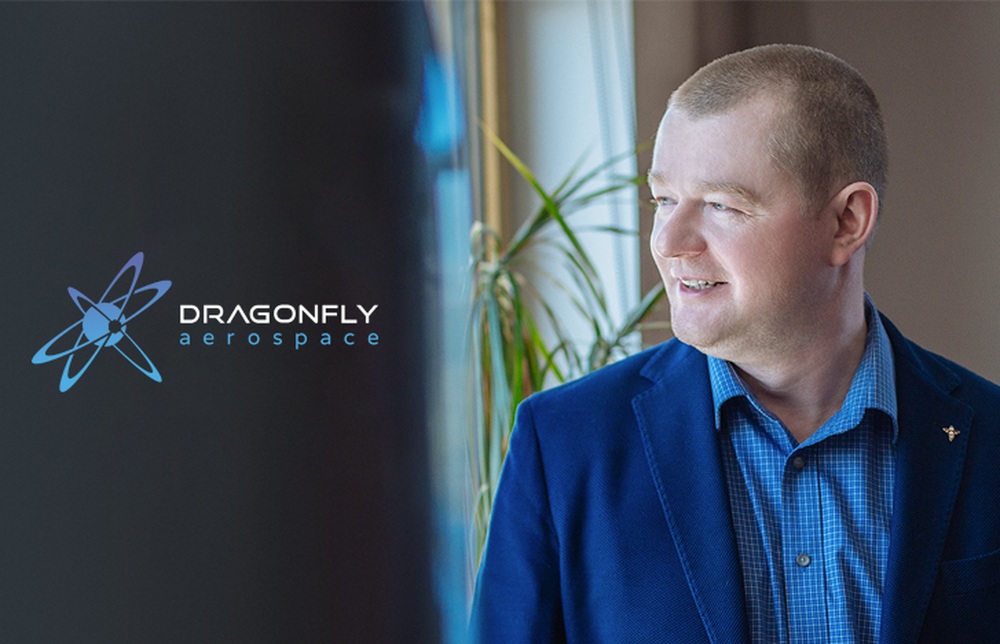Space and information-technology entrepreneur Dr. Max Polyakov today announced the completion of his acquisition of a majority stake in Dragonfly Aerospace, a South African NewSpace company with over 20-year track record in high-performance imaging satellites and payloads.
This purchase cements Dragonfly Aerospace’s status as a critical component of the vertically integrated space ecosystem being built by Dr. Polyakov and Noosphere Ventures that includes Firefly, the competitively-priced space launch provider, EOS Data Analytics (EOSDA), a satellite data and analytics company with its own radar and optical satellite constellations, and SETS, a space electric thruster systems firm.
 “Satellites depend on many components in the space industry value chain. Dragonfly Aerospace’s expertise in creating imaging constellations is an important step in the development of our vertically integrated space ecosystem,” commented Dr. Polyakov. “Dragonfly’s advanced technology provides high quality images in a wide range of spectrums and resolutions that are critical for monitoring the health of our planet and enabling intelligent agriculture that protects biodiversity. This improves global food security and supports a healthy environment which ultimately benefits the lives of people on Earth.”
“Satellites depend on many components in the space industry value chain. Dragonfly Aerospace’s expertise in creating imaging constellations is an important step in the development of our vertically integrated space ecosystem,” commented Dr. Polyakov. “Dragonfly’s advanced technology provides high quality images in a wide range of spectrums and resolutions that are critical for monitoring the health of our planet and enabling intelligent agriculture that protects biodiversity. This improves global food security and supports a healthy environment which ultimately benefits the lives of people on Earth.”
Dragonfly Aerospace was founded in Stellenbosch, South Africa, by a team of five satellite engineers led by Bryan Dean, a global specialist in microsatellites and high resolution cameras. Its compact, high performance imaging payloads have catapulted the company into the role of a trusted partner providing imaging technology. Dragonfly Aerospace announced at the International Astronautical Congress 2020 that it had struck a deal with EOSDA, a Noosphere Ventures portfolio company, to provide two of Dragonfly’s large imagers for the company’s satellites.
EOSDA has previously announced their plans to launch the world’s first agriculture-focused satellite constellation, which will also help address global problems such as climate change, land degradation and environmental threats.
“I am incredibly proud today to see the company that I co-founded become an important part of Dr. Polyakov’s space ecosystem,” said Bryan Dean. “When our team started developing our camera technology in 2016 and then first demonstrated it successfully on the nSight-1 satellite in 2017, I knew that satellite imaging products would prove critical in the rapidly developing nanosatellite sphere. We have applied our extensive experience in developing and flying large microsatellite imagers to create innovative products for this exciting market segment. Our strategy is to work in partnership with satellite bus providers and in time deliver microsatellite solutions as well,” hewadded.
The Stellenbosch-based company emerged in January 2020 from Space Commercial Services (SCS) to lead the next chapter of South Africa’s proud history of space engineering and satellite missions. Dragonfly began with a core team of fifteen people and has since expanded to over one hundred staff.
Dragonfly Aerospace has grown to supply a global clientele that includes NanoAvionics, Loft Orbital and Pixxel among others with a special focus on Europe, currently the largest market for imaging technology. Dragonfly Aerospace also plans to support the South African National Space Agency (SANSA) and the SA space industry to achieve its future space endeavours.
Polyakov is an international space technology and IT entrepreneur, economist and community leader. He is the managing partner of Noosphere Ventures Investment Fund, and the founder of Firefly Aerospace, EOS Data Analytics, SETS Thruster Systems, Renatus, Maxpay, and others, that are part of the Noosphere Ventures portfolio of companies. He is also the founder and advisor to the Association Noosphere, an NGO focused on promoting STEM and free access to education with its prominent Vernadsky Challenge engineering startup contest.





